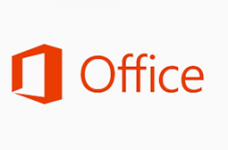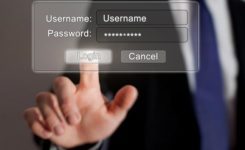Home/What is Blackhat Cyber Crime? Importance of cyber security
Cyber crime is a growing threat. It can take many forms, from phishing email and spyware to viruses and ransomware attack. Cyber crime activity is the highest, ever, now that more and more people are connected to the Internet via laptops, smartphones and tablets, and is one of the most profitable ways to make money in the criminal world. Cyber security comprises technologies, processes and controls that are designed to protect systems, networks and data from cyber-attacks. The Internet allows attackers to be anywhere in the world and attacking victims anywhere in the world. Today, cyber crime is more organized and motivated than at any time in history.
Hackers all have different intentions. Some work to making computer networks more secure, while others develop malware and exploit software vulnerabilities.
Its a form of malicious online behavior motivated by profit. Understanding Blackhat criminal tools, techniques, motivations, cultures, and ecosystems are critical to defending against current attacks and deterring future ones
Like all hackers, black hat hackers usually have extensive knowledge about breaking into computer networks and bypassing security protocols. They are also responsible for writing malware, which is a method used to gain access to these systems.
Their primary motivation is usually for personal or financial gain, but they can also be involved in cyber espionage, protest or perhaps are just addicted to the thrill of cyber crime. Black hat hackers can range from amateurs getting their feet wet by spreading malware, to experienced hackers that aim to steal data, specifically financial information, personal information and login credentials. Not only do black hat hackers seek to steal data, they also seek to modify or destroy data as well.
Non-Professional
• Non-professional cyber criminals
• Use crime kits to make spending money
• Little to no business or technical expertise
• Even though they are not professional, their impact can be significant
Grayhats
• They believe they are offering legitimate services. However, their customers can be both “legitimate” or criminal
• They will look for vulnerabilities in a system without the owner’s permission or knowledge
Blackhats
• Treat cyber crime as a business
• Business and technical expertise
• Often work in a closed group of other professional cybercriminals
• Criminal reputation is everything
State Sponsored
• National security and/or economic motivation
• Technical expertise
• Work in a closed group of other professionals
• Often use Blackhat resources and/or techniques to mask their identity
Hactivists
• Individuals or groups who hack for a social cause, without economic motivation
• Have both technical people and followers
The cyber crime problem is broad and getting worse. More professional cyber crime services make it easier for would-be attackers to become cyber criminals. Cyber criminals don’t need technical abilities when entering the world of cyber crime.
1. Never turn off your computer’s firewall.
Turning it off—even for a minute—increases risk. A firewall creates a barrier between your computer and the Internet, a like a door keeps the bad weather out of your house.
2. Install antivirus software from a trusted source. URL to a list of free and for fee Anti-Virus for your PC.
3. Regularly update your applications and OS. The typical devices has applications from many companies. You must keep them all up to date.
4. Make sure the software you are using is still supported and being updated by its author
Remember that effective cyber security actions will reduce the risk of cyber attacks, and protect organisations and individuals from the unauthorized exploitation of systems, networks and technologies.

Exelegent is pleased to announce a strategic alignment with ZENEDGE, a leading global provider of Cloud-based cybersecurity solutions for Web Application Firewall (WAF), DDoS mitigation and Artificial Intelligence.

Office 365 is the same Office you already know and use every day. And then some. Because Office 365 is powered by the cloud, you can get to your applications and files from virtually anywhere — PC, Mac, and tablets — and they’re always up to date.

Passwords are used for various purposes. Some of the more common uses include: user level accounts, web accounts, email accounts, screen saver protection, voicemail password, and local router logins.